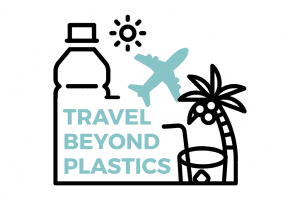Skift Take
For IHG, governments are behind the curve in helping to reduce plastic waste. The real influence comes from its guests, whose awareness and expectations have increased exponentially in the last couple of years.
 Travel Beyond Plastics is a groundbreaking new Skift series about the travel industry’s addiction to plastics and what happens when companies and travelers try to kick this unsustainable habit.
Travel Beyond Plastics is a groundbreaking new Skift series about the travel industry’s addiction to plastics and what happens when companies and travelers try to kick this unsustainable habit.
InterContinental Hotels Group announced plans to replace its single-use plastic toiletry bottles with “bulk-size amenities” by 2021 globally, in an effort to curb plastic waste.
Plastic awareness has gained serious momentum in the last couple of years, but IHG CEO Keith Barr sees the real pressure coming from guests, not new government legislation.
“Governments collectively haven’t taken significant action in this space,” Barr told Skift. “You’ve got municipalities and local jurisdictions, but the reality is our colleagues and our customers expect us to take a leadership position on things like waste.” Laws affecting plastics vary tremendously. The European Union’s plan for 2021 is among the most extensive, but even so, it targets very specific items like cutlery, plates, straws, and cotton bud sticks.
Not all of IHG’s new toiletry containers are refillable, but the goal is for the majority to be refillable and thereby more sustainable, according to Barr. He identified Six Senses as ahead of the curve in using ceramic refillables and pressuring its supply chain to use less plastic.
Barr expects it will take one to three years to recuperate the initial cost of these new containers and acknowledged that there is more housekeeping labor involved in maintaining refillables, but does not expect this extra labor to make an additional negative impact on the bottom line.
The larger, non-refillable bottles will reduce plastic waste, but also face the same recycling obstacles as miniature bottles: 91 percent of plastic does not get successfully recycled, according to National Geographic, depending greatly on the type of plastic, how it’s treated and separated by the recycler, the available recycling facilities in that region, and the fact that China will no longer accept such refuse. Like most other hotel companies, IHG has not been able to measure its total plastic usage.
What’s more unusual than cutting miniature toiletry bottles is IHG’s efforts with its suppliers. “It is work, to be very candid,” Barr told Skift of influencing the supply chain, adding that governments have a role in pressuring the packaging industry to improve. IHG worked with Ege to trial new carpets made with yarn produced from recycled plastic bottles and fishing nets, as well as Trendsetter for pillows and duvets with recycled plastic filling, according to its 2018 Responsible Business Report.
This pursuit of a circular plastic economy may not resonate as deeply with guests as nixing plastic straws, but it’s a crucial undertaking for the industry. IHG pledged to remove plastic straws globally by the end of 2019, plastic straws being among the simplest plastic-reduction measures. IHG also piloted the removal of plastic water bottles from meetings and events, and recently banned plastic water bottles from its corporate offices, said Barr.
With operations in over 100 countries, IHG stands to inspire smaller companies to do more about plastic waste reduction. By the same token, IHG also has more influence over suppliers than a smaller player, so the more IHG pressures its supply chain to reduce plastic, the better for the industry as a whole.
Have a confidential tip for Skift? Get in touch
Tags: climate change, ihg, plastics, sustainability, travel beyond plastics
Photo credit: The Kimpton Fitzroy London featuring bulk toiletries. IHG is working on cutting miniature plastic toiletry bottles. InterContinental Hotels Group


